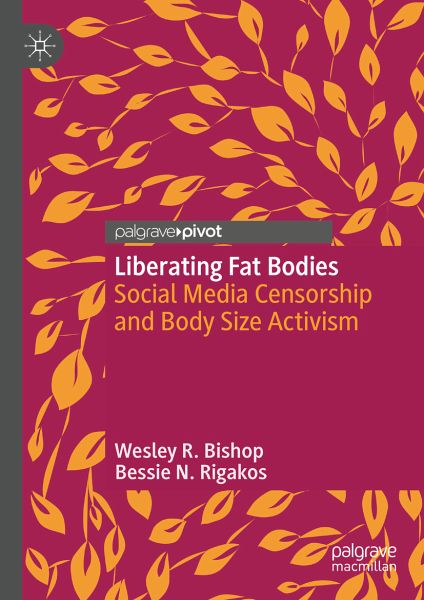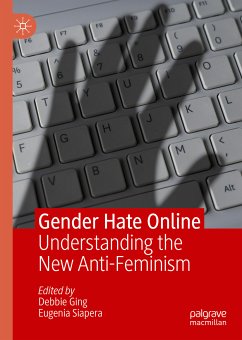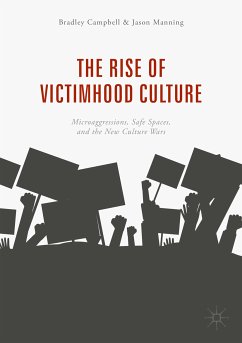
Liberating Fat Bodies (eBook, PDF)
Social Media Censorship and Body Size Activism
Versandkostenfrei!
Sofort per Download lieferbar
32,95 €
inkl. MwSt.
Weitere Ausgaben:

PAYBACK Punkte
16 °P sammeln!
Using a multidisciplinary and intersectional approach, this book explores the social factors that influence the ways in which societal norms police fat bodies. Chapters examine the racist and colonial constructions of Western beauty norms as well as the evolution of anti-fat bias and fat liberation, before delving into the relationship between social media and body size activism, with a particular emphasis on social media companies censoring fat people. The authors draw on first-person narratives of artists, activists, and fat social media users to unpack how, these mostly women, have used the...
Using a multidisciplinary and intersectional approach, this book explores the social factors that influence the ways in which societal norms police fat bodies. Chapters examine the racist and colonial constructions of Western beauty norms as well as the evolution of anti-fat bias and fat liberation, before delving into the relationship between social media and body size activism, with a particular emphasis on social media companies censoring fat people. The authors draw on first-person narratives of artists, activists, and fat social media users to unpack how, these mostly women, have used their bodies to transform the negative social perceptions of fat people.
This book will be of interest to scholars and students in Sociology, Gender Studies, History, and Media Studies who research body size activism and beauty norms.
This book will be of interest to scholars and students in Sociology, Gender Studies, History, and Media Studies who research body size activism and beauty norms.
Dieser Download kann aus rechtlichen Gründen nur mit Rechnungsadresse in A, B, BG, CY, CZ, D, DK, EW, E, FIN, F, GR, HR, H, IRL, I, LT, L, LR, M, NL, PL, P, R, S, SLO, SK ausgeliefert werden.












